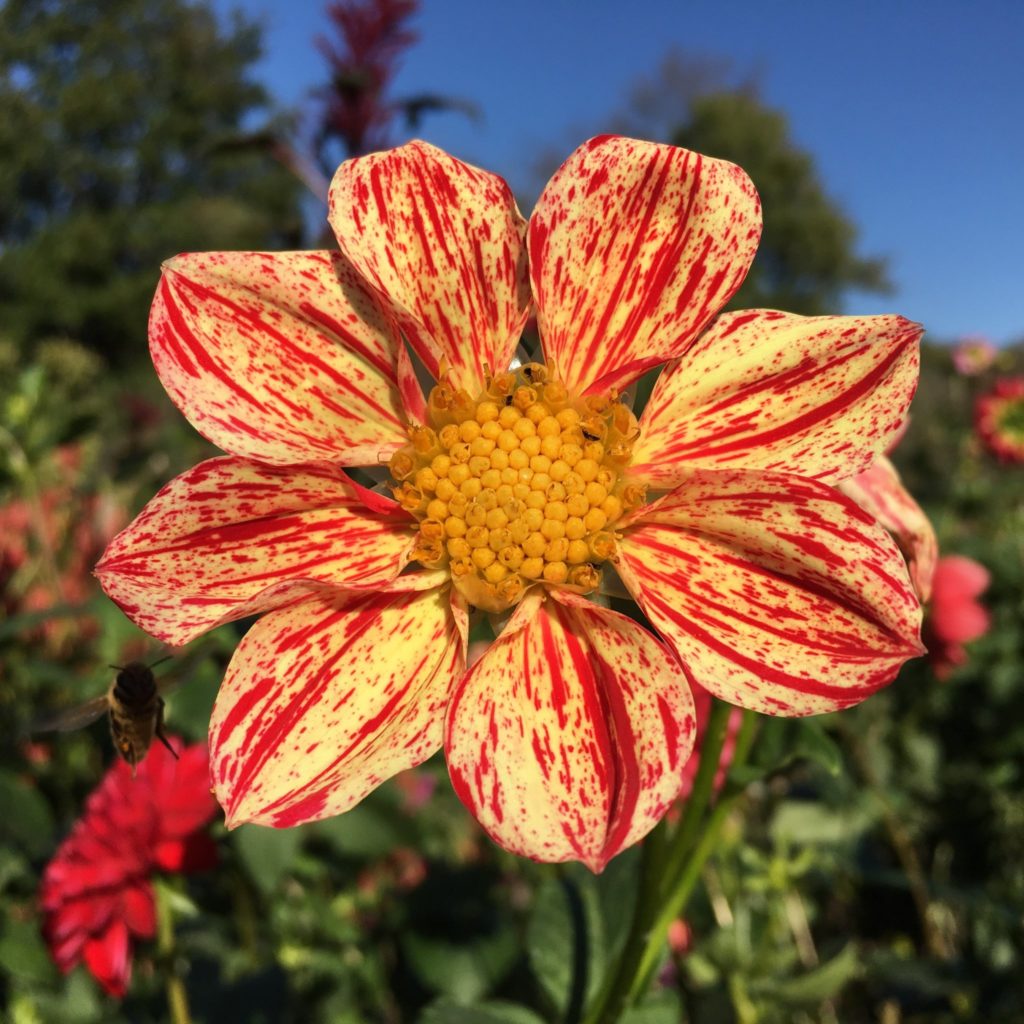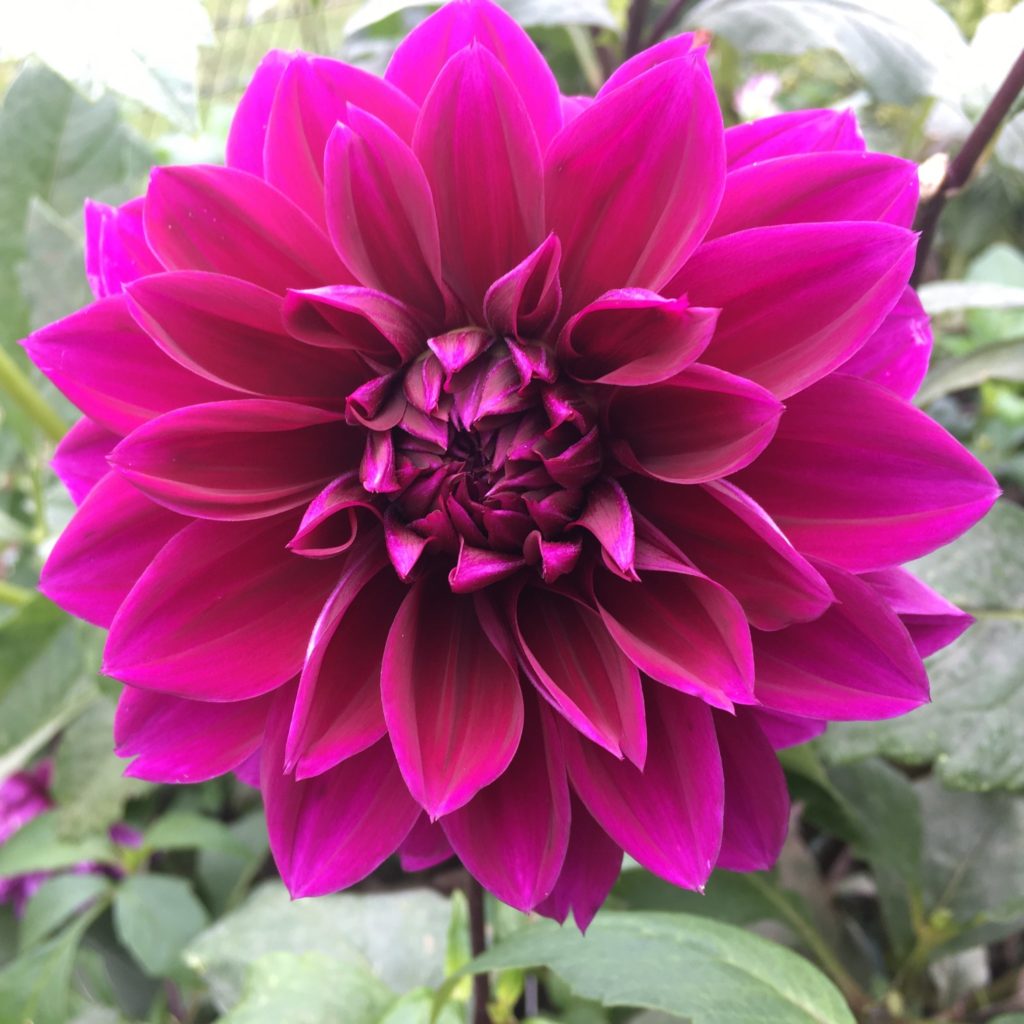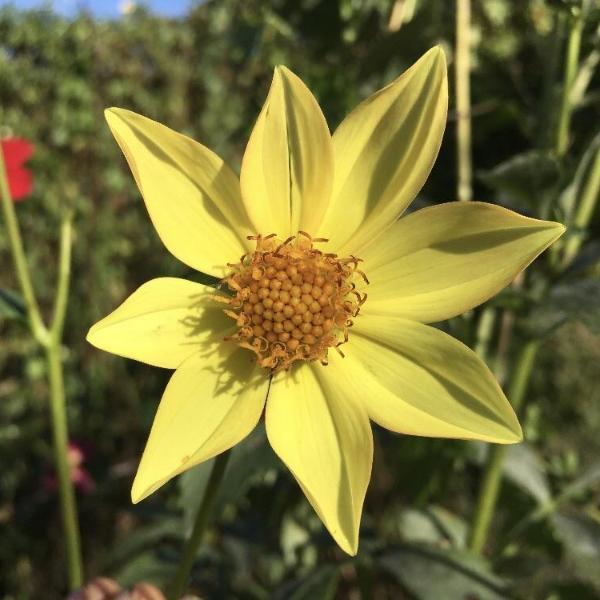“What Have I Learned So Far”, Mary Oliver
All summations have a beginning, all effect has a
story, all kindness begins with the sown seed.
Thought buds toward radiance. The gospel of
light is the crossroads of —indolence, or action.
Be ignited, or be gone.
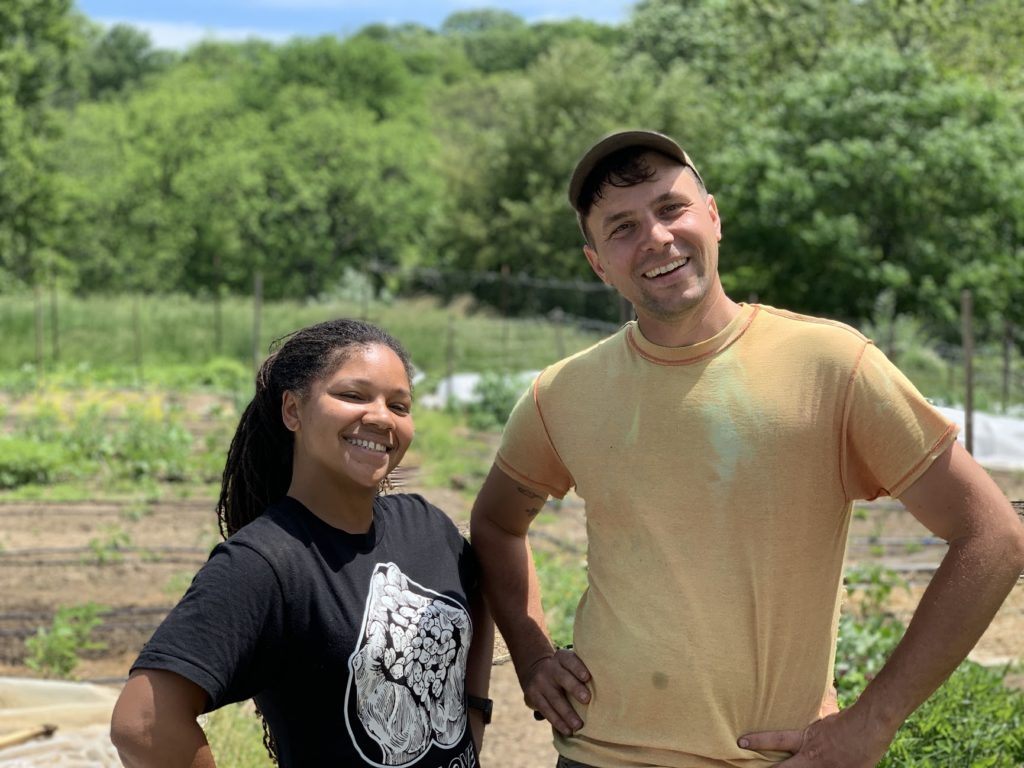
I had the pleasure of visiting Owen Taylor at his farm within the Mill Hollow Farm in Newtown Square, Pennsylvania. Owen runs Truelove Seeds, a network of 20 farms that offers “rare, open pollinated, and culturally important vegetable, herb, and flower seeds.” Among this network of seed growers are several POP orchard partner sites, including Sankofa Farm at Bartram’s Garden, Mill Creek Farm, and Pentridge Children’s Garden (meet the farmers).
Owen is a mentor to many and a welcoming host. Amirah, seed farming apprentice, and Meryl, visiting farmer from Western Massachusetts, were among the crowd on the day of my visit. The main task for the day was to plant various summer crops, so we spent the morning preparing beds.
Owen uses a ‘No Till, Leave the Roots’ bed preparation technique, which is incredibly sensible and practical. (Note – he learned the technique from Bryan O’Hara at Tobacco Road Farm in Lebanon, CT. Great podcast/interview on the technique here.) This technique prevents the ill effects so often associated with common tilling practices: the ‘solar murder’ of beneficial soil microbiota, destruction of established water and air channels, and the exposure of the basal weed seed bank to favorable growing conditions.
He begins by weed-whacking or hoeing the tops of the annuals in the bed. He then solarizes the area, covering the bed in thick clear plastic. If the bed is in full sun and the temperature is above 85℉ then this method burns weeds to a crisp within a few hours. At a minimum, temperature must be above 75℉ and the bed must be in full sun. (Solarization warrants further reading: see here for a full review.) Owen then decapitates any remaining weeds with light hoeing, leaving the roots to decompose in the soil. After raking the weed heads aside, he caps the bed off with an inch of compost. In go the plants followed by a drip irrigation line (as necessary).
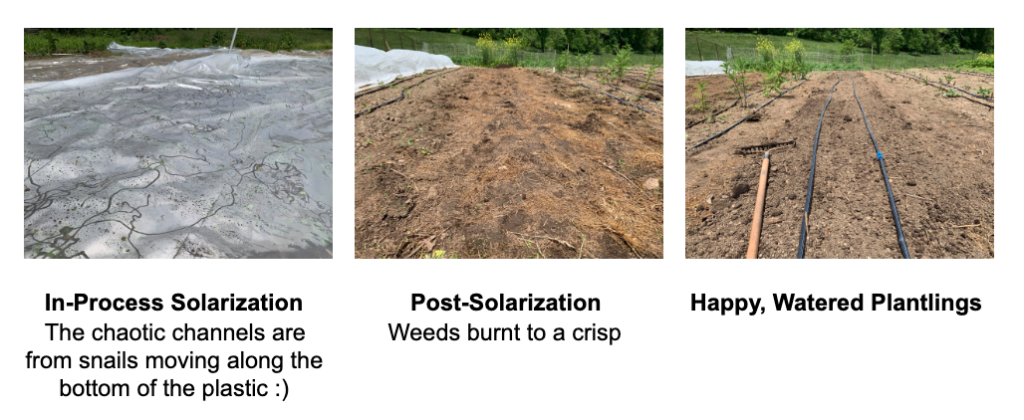
We chatted as we worked. From growing vegetable gardens as a child to working professionally with various food justice orgs in San Francisco, NYC (with POP’s own Phil Forsyth), and Philadelphia, Owen has always been passionate about gardening and agriculture. Prior to founding Truelove Seeds, Owen managed William Woys Weaver’s seed collection, which boasts over 7000 different varieties.
Truelove Seeds believes in growing seeds to which one feels connected. They are less concerned with having a diverse catalog than they are for ‘returning plants to the descendants of the original cultivators.’ For Owen, this means growing crops native to Southern Italy and Ireland (e.g. Delaway Cabbage (Ireland), Lumper Potatoes (Ireland), Borlotto Beans (Italy), Lunga di Napoli Squash (Italy)). Amirah focuses on plants native to the African Diaspora (e.g. Egusi and Cushaw and Moruga Hill Rice (unfortunately, not in the Truelove Seeds catalog). Amirah is also very attached to various black-eyed peas, as well as the bambaras.


Owen has careful about declaring any type of plant his ‘speciality,’ but he did mention his talent for growing edible dahlias. Native to the Americas, dahlia tubers were a tasty food source for ancient Aztecs and are still eaten by their descendents at present. They are prepared much like more common tubers (e.g. potatoes) and cover an impressive range on the taste scale; certain varieties can even taste sweet like fruits! Don’t sleep on the beautiful flowers, though, which are also edible and have a wide range of taste profiles.
Here’s just a small sample of Truelove’s Dahlia offerings:
Owen was also eager to show me his thriving beds of bambaras [Vigna subterranea], a plant native to West Africa. Bambaras grows its pod underground much like the peanut plant. And of course, you guessed it, the seeds within the pod are edible! Owen is particularly excited about further adapting his collection to our climate, as bambaras growing in North America are quite rare.
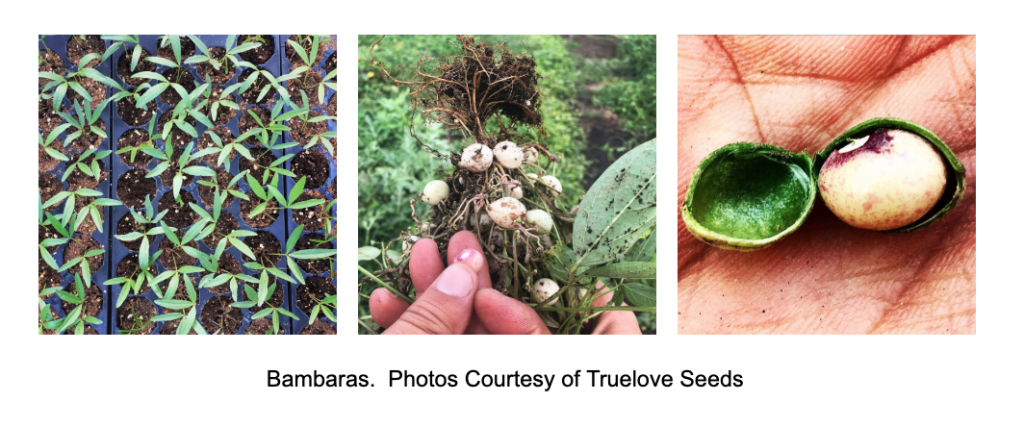
The Truelove Seeds network is immense, stretching as far west as California and as far north as Maine. Such a spread enables a diverse catalog of approximately 125 products. Their website is fantastic and very easy to use. You can ‘meet the farmers’ to get a better feel for the folks behind the products, including diverse rural and urban farms connected to different communities and ancestries! If you’re more of a ‘brick and mortar’ person then you can buy Truelove Seeds at the following locations: Greensgrow Farms, Greensgrow West, Mariposa Food Co-Op, The Wooden Shoe in Philadelphia. Although >95% of the crops grown at Owen’s farm are for seed production, you can purchase Owen’s cut flowers from Snap Dragon Flowers in West Philadelphia.
It’s not too late to germinate and plant seeds in the Philly area! Just make sure you select plants for late season harvest, such as cabbages, winter spinach, and beans.
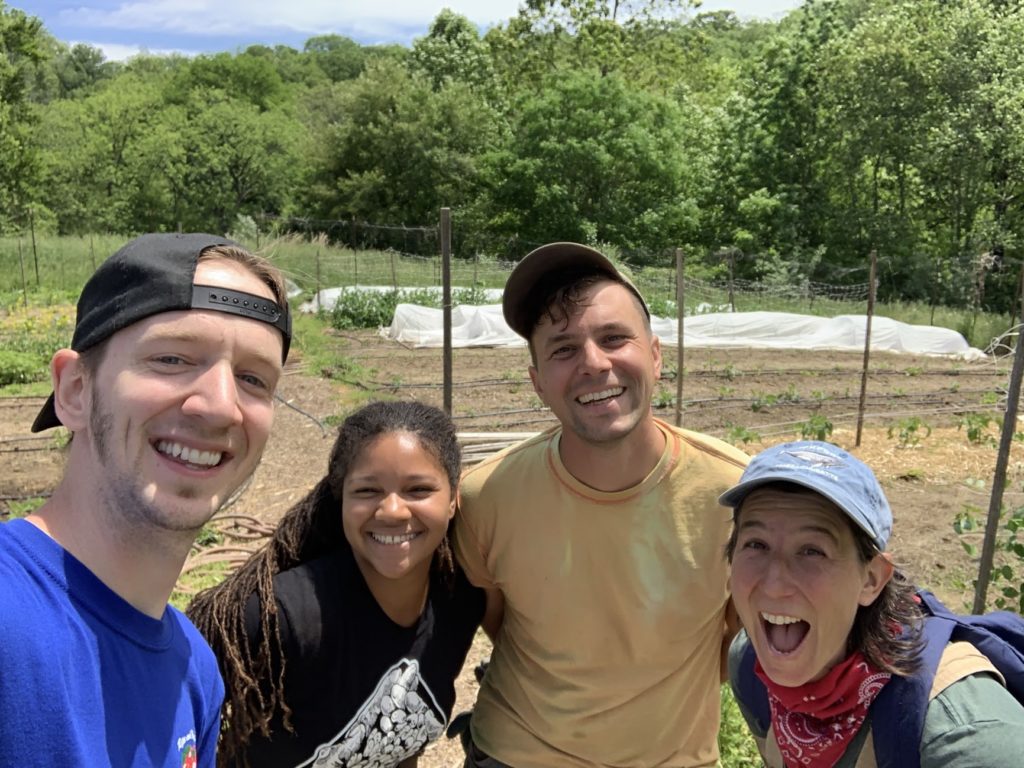
This POP Blog Post prepared by 2019 POP Intern Chris Flounders.
SUPPORT US! If you found this entry useful, informative, or inspiring, please consider a donation of any size to help POP in planting and supporting community orchards in Philadelphia: phillyorchards.org/donate.
